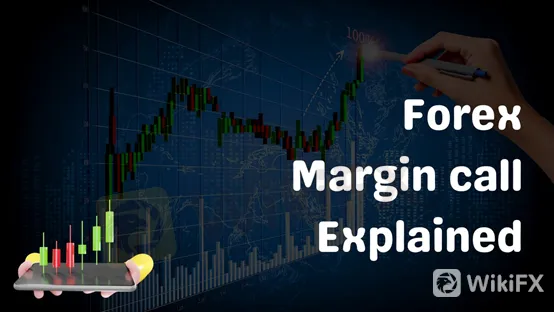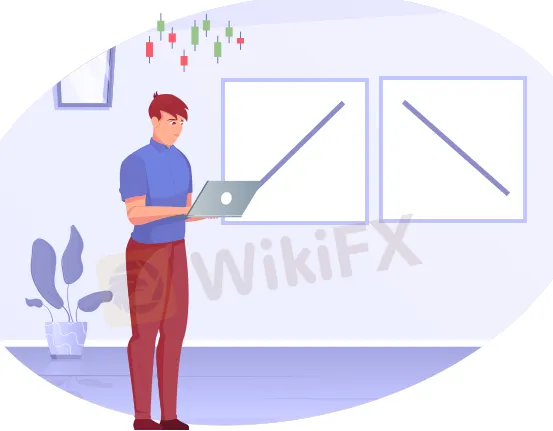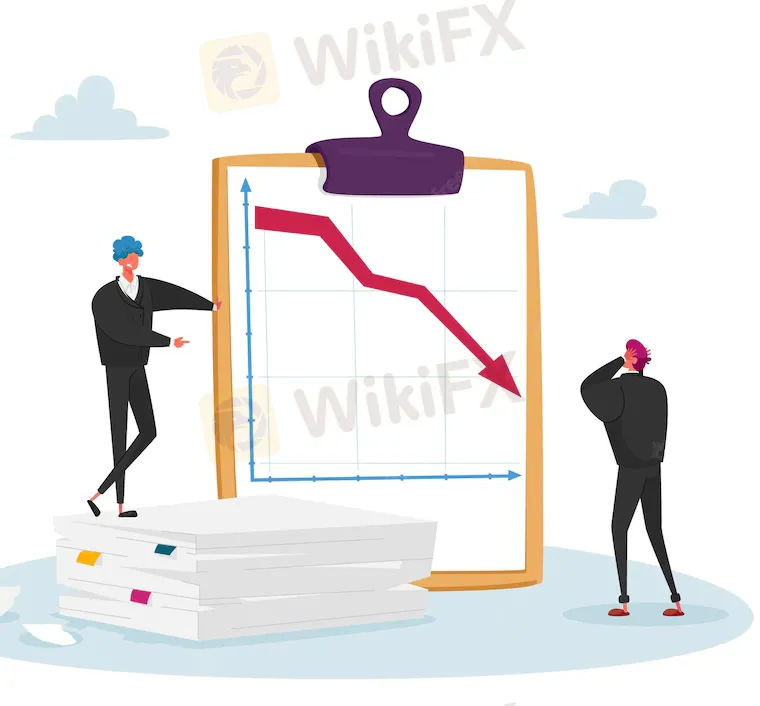User blogs
Regulated Forex Trading in South Africa
A lot of new forex beginners may never have heard the words ‘regulated' and ‘authorised' in the context in which they are used in the forex industry.To get more news about fspr regulated forex brokers, you can visit wikifx.com official website.
Simply defined, regulation refers to global supervisory bodies who are tasked to regulate forex by setting specific standards that the brokers who fall under their jurisdiction must comply with.
Such standards can include being registered, licensed, and thus authorised with the regulatory body, having frequent audits conducted, communicating changes of service to the traders that have registered accounts with them, and more.

These standards are unique to each regulatory body and their jurisdiction, however, they serve the same purpose, to keep traders and their funds safe.
What is the FSCA and its role in forex trading
Each country and region has its own regulatory body that regulates and authorises financial institutions or businesses that offer financial products and services to citizens within that country or region.
The Financial Sector Conduct Authority, also known as the FSCA, is the market conduct regulator of financial institutions within South Africa. The FSCA regulates and authorises the following financial service providers (FSP):
The FSCA works and to ensure that the financial sector is efficient and that customers within it remain informed and are treated fairly. This also ensures the provision of a stable financial market where consumers are both informed and protected.
It also ensures that those who jeopardize the financial well-being of consumers are held accountable for their actions or their attempts in doing so.
Why must you only use regulated forex brokers?
Regulatory entities such as the FSCA ensures that consumers are treated fairly, they are protected, and that they are informed; choosing a forex broker may be tedious, however, the most important aspect to verify when evaluating different brokers, is that the broker is regulated and authorised by a reputable regulatory entity in the country where the trader resides.
The reason for this, is that should there be any disputes, problems, or issues, and the trader reports the broker to the regulatory entity, it means that the problem, issue, or dispute can be resolved if the broker is found guilty of an offence.
When traders try to report unregulated brokers for the same reasons, it means that traders do not have support from any known regulatory entity, and that traders could lose their funds to fraudulent, illegitimate, or scam brokers who claim to have regulation, but do not.
When choosing a forex broker, traders cannot merely depend on the broker's claim that they are regulated and authorised.
Traders must ensure that they enquire about the corresponding license number that the broker was issued to confirm that they are both regulated and authorised to provide financial services and products.
Amidst the FSCA, there are reputable and trustworthy regulatory entities around the world who are the watchdogs over the forex market, ensuring that traders have access to a safe and secure trading environment.
Top 6 DFSA Regulated Forex Brokers 2023
While no single Middle Eastern regulatory agency exists, there are respected organisations in individual countries. The best-known regulator in the Middle East is the Dubai Financial Services Authority (DFSA).To get more news about dfsa regulated forex brokers, you can visit wikifx.com official website.
We understand that traders have different needs. Beginner traders may want a broker with excellent educational materials, while more experienced traders may look for a broker with fast execution and advanced trading tools. Others want high levels of leverage or low deposit accounts. The DFSA-regulated brokers below cater to these differing needs but are also listed because of their excellent reputations in the Forex trading industry.
What is the DFSA?
The Dubai Financial Services Authority, or DFSA is the local Dubai regulator of all non-banking financial activities and has oversight over all regulated brokers in Dubai.

What does the DFSA do?
The DFSA regulates financial activity in Dubai. It also supervises the Forex currency market to protect Forex traders from illegal actors and rogue brokers. Regulation is the primary way to establish trust in a Forex broker.
What is the goal of the DFSA?
The principal goal of the DFSA is only to regulate businesses enough to prevent unnecessary risks. In a letter dated July 24 2017, the CEO of the DFSA, Ian Johnston, issued new rules for OTC Derivate brokers accepting retail clients following an increase in the numbers of cross-border companies targeting the region.
These new rules mandated margin requirements dependent on the leverage used, outlawed using credit cards for making deposits (debit cards are still allowed), and required that all educational and marketing material is clear, fair, and not misleading.
Forex Risk Disclaimer
Trading Forex and CFDs is not suitable for all investors as it carries a high degree of risk to your capital: 75-90% of retail investors lose money trading these products.
Forex and CFD transactions involve high risk due to the following factors: Over-leveraging, unpredictable market volatility, slippage arising from a lack of liquidity, inadequate trading knowledge or experience, and a lack of regulatory protection for clients.
Traders should not deposit any money that is not disposable. Regardless of how much research you have done, or how confident you are in your trade, there is always a substantial risk of loss. (Learn more from the FCA or from ASIC)
Our Methodology
Our State of the Market Report and Broker Directory are the result of extensive research on over 180 Forex brokers. The explicit goal of these resources is to help traders find the best Forex brokers - and steer them away from the worst ones - with the benefit of accurate and up-to-date information.
With over 200 data points on each broker and over 3000 hours of research and review writing, we believe we have succeeded in our goal.
In a world where trading conditions and customer support can vary based on where you live, our broker reviews focus on the local trader and give you information about these brokers from your perspective.
BVI FSC Regulated Forex Brokers
The Financial Services Commission (FSC) of the British Virgin Islands (BVI) is the supervisory authority responsible for overseeing and regulating the financial services industry in the British Virgin Islands, a is a popular offshore jurisdiction. Due to its tax rate structure, the BVI has become one of the known places for Financial Investment firms.To get more news about fsc regulated forex brokers, you can visit wikifx.com official website.
BVI FSC Forex Trading Platform
Forex Trading is legal and regulated in the British Virgin Islands (BVI). IIn fact, many forex brokers choose to register and operate from the BVI due to its favorable business environment, which includes a relatively low tax regime and a flexible regulatory framework allowing to accept traders from around the world. Yet, BVI is an offshore zone which is hardly compared for its transparency and sharp rules to reputable jurisdiction like US, UK or Australia.

The Financial Services Commission (FSC) is the regulatory body responsible for overseeing the financial services sector in the BVI, including forex trading activities.
Forex brokers and platforms operating in the BVI need to be licensed by the FSC and comply with their regulations
Although forex trading is legal in the BVI, the regulations are considered low compared to top-tier and reputable financial Regulators worldwide. That is why it is essential for traders to exercise caution and do deep research before selecting a broker, as the level of regulatory oversight might differ from more stringent jurisdictions. (For example, Read Why Trade with UK FCA Regulated Brokers)
The British Virgin Islands FSC Regulation
The British Virgin Islands is considered an offshore financial center, and the Financial Services Commission is the regulatory body that oversees the financial services sector within the territory. The FSC's role is to ensure that the BVI's financial services industry operates within the established regulatory framework and adheres to international standards while providing financial services to non-residents, which is characteristic of offshore jurisdictions.
FSC regulatory body was established in 2001 under the Financial Services Commission Act, 2001, and is now handling all the responsibilities previously held by the government through the Financial Services Department. It serves as an autonomous regulatory authority for the financial services industry in the British Virgin Islands.
Generally, the FSC's responsibilities are to ensure compliance with laws, secure and maintain transparent operations along with investors' protection. FSCBVI integrates financial market participants in a fair environment through certain threshold conditions.
However, BVI and any other offshore zone is highest risk zones, since many unscrupulous Brokers establish their entities here too. So in case Brokers is solely BVI regulated Broker it is high risk to be a scam Forex.
Even though the authority operates according to international, global standards it is not providing the level of protection as UK, AU, or US authorities.
The minimum capital required to set up a business is much lower compared to other authorities. Besides, FSCBVI-regulated forex brokers do not need to provide a segregated account for customer deposits, along with other much "easier" protections for the traders applied, also with access to High-leverage provided recognized as highly risky activity overall
However, it still maintains a safe trading environment for the BVI Regulated Forex Brokers that have additional regulations but gains access to accept international Traders via its BVI entity. But, it is essential to do your own research and we advise to choose Broker with additional licenses due diligence before selecting a broker, since BVI doesn't ensure the same level of protection as more stringent regulators.
What is the FSC Certified Broker?
An FSC Certified Broker refers to a financial services provider, such as a forex broker, that has been licensed and regulated by the Financial Services Commission (FSC) of a particular jurisdiction, BVI FSC in the case.
Are FSC Brokers Good to Trade?
FSC-regulated brokers can be good to trade with, but we would recommend choosing Broker with another reputable license to be a good choice. However, traders should always consider the fact that BVI is an offshore zone and the level of regulatory oversight and investor protection provided by FSC is considered low.
How Does FSC work?
The FSC being a Regulatory Body primary function is to ensure that financial service providers, such as banks, insurance companies, investment firms, and forex brokers, operate within a well-regulated framework and maintain transparency, fair practices, and compliance with international standards. Yet, worldwide BVI FSC and regulation are ranked as an offshore zone with slight regulation compared to top-tier regulators like ASIC or FCA.
Best ASIC-Regulated Forex Brokers
Forex trading among retail investors and traders in Australia is on the rise as this huge financial market expands in the country and globally. Many currencies trade in the forex market, and the Australian dollar (AUD) - also known by its nickname "the Aussie" - is among them. This currency is issued and managed by the Reserve Bank of Australia (RBA) which acts as the country's central bank. To get more news about asic regulated forex brokers, you can visit wikifx.com official website.
Furthermore, the Bank for International Settlements (BIS) ranked the AUD 5th among April 2016's most actively traded currencies when it then made up 6.9 percent of forex market turnover. The AUD was also ranked 6th among currencies held as central bank reserves, making up 1.5 percent of Q3 2018 reserves, according to the International Monetary Fund (IMF).
6 Best ASIC-Regulated Forex Brokers
Each of the top ASIC-regulated forex brokers listed below accepts Australian clients. Although forex traders based in Australia will typically select an ASIC-regulated broker to deal through for their own protection, other international brokers may also accept them as clients.

When selecting the best online brokerage firms regulated by ASIC, keep in mind the broker you choose is as important as how you trade. Also, the amount of leverage you can use, the assets you can trade, the available trading software and the required amount for a minimum margin deposit can vary substantially between brokers, so review each broker carefully to make sure they can fulfill your requirements.
1. Best for Access to Foreign Markets: Interactive Brokers
Interactive Brokers is a top U.S.-based online broker that was founded in 1977. It allows you to trade more than 120 world markets, including stocks listed on the Australian Stock Exchange (ASX). Regulated in the U.S. by the National Futures Association (NFA) and the Commodity Futures Trading Commission (CFTC), Interactive Brokers accepts clients from Australia via its Interactive Brokers Australia Pty Ltd. subsidiary which is duly regulated by ASIC.
In addition to forex pairs, Interactive Brokers lets you trade stocks, futures, options and options on futures, bonds and funds. Its top-rated trading platform TraderWorkstation (TWS) is available in both Windows and Mac versions and is geared toward professional traders. Interactive Brokers also offers a mobile option for iOS and Android, as well as a more basic trading platform called Client Portal.
Although you might find the Interactive Brokers commission schedule somewhat complex, its fees are competitive to suit high-volume trading. It also offers extensive research and educational materials for traders who need that. This broker does charge a fee for inactive accounts.
2. Best for US Clients: FOREX.com
FOREX.com is the leading online forex broker in the U.S. for client assets. It submits to strict regulation under the CFTC and NFA, as well as ASIC and accepts Australian clients.
You will need a minimum deposit of $250 to open a trading account at FOREX.com. Although the maximum leverage ratio is only 50 to 1, you can trade micro-lots if you want to take the lower risk to start with.
With respect to trading platforms, FOREX.com offers its own proprietary trading platform and also lets you use Metatrader 4 or 5 (MT4/5) and NinjaTrader. The broker supports platforms for trading on desktop, web-based or mobile devices.
3. Best in Australia: Vantage
Vantage is a forex trader and CFD market for anyone in Australia. You can also trade indices, commodities and cryptocurrency if you like. With quality liquidity and the capacity to handle high volume traders, Vantage also offers:
4. Best for Low Deposits: Plus 500
You do not own or have any rights to the underlying assets. Consider if you fall within our Target Market Distribution. Please refer to the Disclosure documents available on their website.
In order to trade in a real trading account you will need to complete the registration, fill in the questionnaire, verify your account and deposit $100 to get started with an account at Plus500. You can trade an exceptionally wide range of more than 2,500 assets on CFDs. The broker does not provide support for MT4/5, and its proprietary trading platforms have similar functionality but lack the user base and third party software that MT4/5 is so popular for.
5. Best for MetaTrader4 Users: IG
Founded in 1974 in the UK, IG is an online forex and CFD broker that also offers spread betting. It is regulated by the FCA in the UK and by ASIC in Australia, and it accepts Australian clients.
IG uses a popular broker model that features straight through processing (STP) for order execution and it offers direct market access (DMA) for share trading.
You'll need at least 0 to open a trading account with IG that will let you trade forex, shares, commodities, exchange-traded funds (ETFs), cryptocurrencies and indices. Its supported 3rd-party trading platforms include MT4, and the broker also offers its proprietary app for mobile trading app and a web-based trading platform.